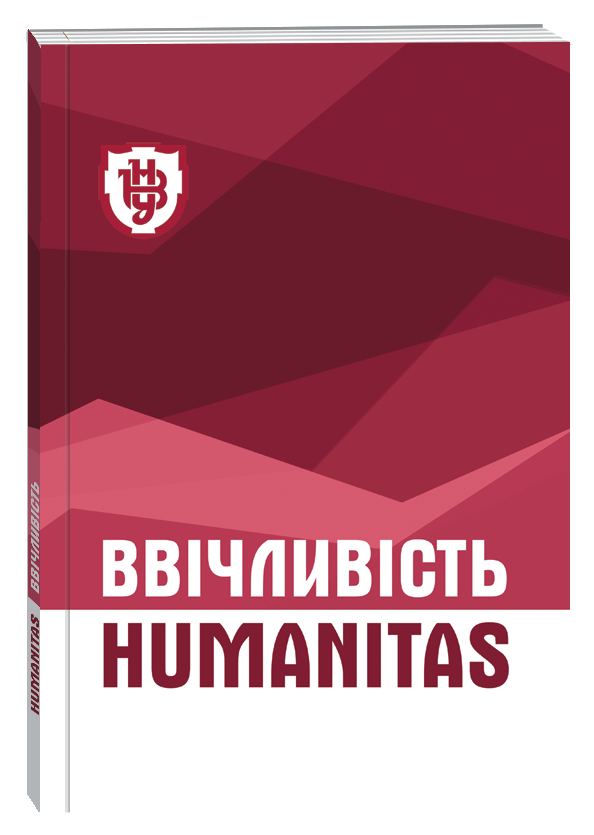SOME ASPECTS OF FORMING GENDER COMPETENCE AMONG FUTURE SPECIALISTS OF THE SOCIAL WORK
DOI:
https://doi.org/10.32782/humanitas/2021.5.2Keywords:
gender competence, social work specialist, professional activity, gender equality, institution of higher educationAbstract
Given the establishment of humanistic values in democracies, which provide for the observance of social justice and equal conditions which allow realizing the rights and opportunities of all members of society, the importance of a gender approach in the professional activities of professionals in various fields is growing. Higher education institutions must provide a gender component in the training of specialists. Theoretical substantiation of the peculiarities of the formation of future social workers’ gender competence is the purpose of the article. Accordingly, to achieve it there were used general scientific methods of cognition. The article highlights the need for the formation of gender competence in future professionals in social work and the use of this integrated approach. Based on the analysis of the scientific literature, the content and structure of the concept of “Gender competence of a social worker” are clarified. Here is stated that a modern social worker must have gender sensitivity and gender loyalty. Moreover, in some professional situations, they must show the skills of gender transformation acting as an agent of social change. Here is substantiated the necessity of forming gender competence of future specialists in the social sphere using the introduction of a cross-gender approach to the educational process, in which an important place belongs to specialized disciplines that reveal the applied aspects of gender equality. The content of the training course “Gender aspects of social work”, taught at the Lviv State University of Life Safety, is revealed. This discipline gives social workers an understanding of gender as a social construct, provides the ability to notice and assess the situation of gender inequality in various spheres of life of clients. Future social workers will also be able to evaluate gender-discriminatory practices to avoid them in their professional activities; develop skills for constructive resolution of gender issues and potential conflicts which arise during the working process.
References
Гончаренко О.В. Фахова підготовка майбутніх соціальних працівників до гендерно чутливої соціальної роботи. Вісник післядипломної освіти. Серія : Педагогічні науки. 2020. Вип. 12 (41). С. 63–76.
Карагодіна О.Г., Семигіна Т.В. Гендерна освіта у підготовці соціальних працівників. Репрезентація освітніх досягнень, мас-медіа та роль філології у сучасній системі наук : монографія. Вінниця : Європейська наукова платформа, 2021. С. 25–37.
Маркова Н. Гендерний підхід у соціальній роботі. Наукові записки Малої академії наук України. Серія : Педагогічні науки. 2019. Вип. 15. С. 46–49
Про затвердження плану заходів з реалізації зобов’язань Уряду України, взятих в рамках міжнародної ініціативи «Партнерство Біарріц» з утвердження гендерної рівності. Затверджено розпорядженням Кабінету Міністрів України від 16 грудня 2020 р. № 1578-р. URL: https://zakon.rada.gov.ua/laws/show/1578-2020-%D1%80#Text (дата звернення: 11.11.2021).
Семигіна Т. Сучасна соціальна робота. Київ : Академія праці, соціальних відносин і туризму, 2020. 275 с.
Семигіна Т., Ярошенко А. Гендерна компетентність соціальних працівників: науковий дискурс. Tendenze attuali della moderna ricerca scientifica: der Sammlung wissenschaftlicher Arbeiten «ΛΌГOΣ» zuden Materiali ender international en wissens chaftlich-praktischen Konferenz (B. 2), 5. Juni, 2020. Stuttgart, Deutschland: Europäische Wissenschafts plattform, 2020. С. 32–33.
Стандарт вищої освіти: перший (бакалаврський) рівень вищої освіти, ступінь вищої освіти «бакалавр», галузь знань 23 «Соціальна робота», спеціальність 231 «Соціальна робота». [Чинний від 2019-04-24]. URL: https://mon.gov.ua/storage/app/media/vishcha-osvita/zatverdzeni%20standarty/2019/04/25/231-sotsialna-robotabakalavr.pdf (дата звернення: 11.11.2021).
Стражнікова І. Проблеми ґендерної політики в Україні та країнах Західної Європи: порівняльно-історіографічний аналіз. Педагогічний дискурс. 2018. Вип. 24. С. 63–68.
Україна стала повноправною учасницею «Партнерства Біарріц» / Президент України. Офіційне Інтернет-представництво. URL: https://www.president.gov.ua/news/ukrayina-stala-povnopravnoyu-uchasniceyupartnerstva-biarric-63521 (дата звернення: 10.11.2021).
Шевченко Т.Ю. До питання про зміст поняття «гендерна компетентність» у сучасному науковому дискурсі, Science and Education a New Dimension. Pedagogy and Psychology. 2017. V (57), Issue: 129. Р. 45–48
Шлєіна Л.І. Зміст гендерної компетентності викладача аграрного закладу вищої освіти . Інноваційна педагогіка. 2019. Вип. 14(2). С. 178–182.
Ярошенко А.А., Семигіна Т.В. Розпізнати нерівність: гендерний аналіз навчальних матеріалів у соціальній роботі. Збірник наукових праць Кам’янець-Подільського національного університету імені Івана Огієнка. Серія : Соціально-педагогічна. 2019. Вип. 32. С. 183–198.
Gender Equality Glossary / UN Women Training Centre. URL: https://trainingcentre.unwomen.org/mod/glossary/view.php?id=36&mode=letter&hook=G&sortkey&sortorder=asc&fullsearch=0&page=2 (дата звернення: 12.11.2021).







